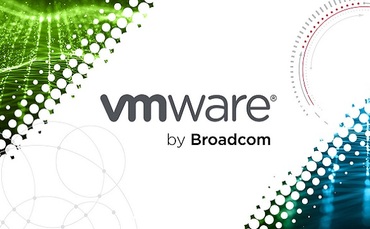The transition follows the completion of Broadcom’s $61 billion acquisition of VMware in November.
The shift away from perpetual licenses extends to the discontinuation of support and subscription (SnS) services for perpetual licenses.
VMware by Broadcome as it is now known announced through its blog on Monday that it will exclusively offer term licenses or subscriptions moving forward.
While existing customers with perpetual licenses and active support contracts are assured continued usage, the support will be limited to the terms outlined in existing agreements.
Once SnS terms expire, customers will no longer receive support.
Historically, VMware has hailed its perpetual licenses as among the most renowned in the software industry. These licenses provide customers with a perpetual key, granting them access to the associated software indefinitely. However, support and software updates are separate, and without switching to a subscription, customers with perpetual licenses will no longer receive these crucial aspects.
VMWare by Broadcom is implementing this change with the hope that customers will be incentivised to adopt subscription models. The company is offering unspecified “upgrade pricing incentives” to entice users to make the switch from perpetual licensing to subscriptions.
The affected products include VMware offerings such as Cloud Foundation, HCX, NSX, Site Recovery Manager, vCloud Suite, vSAN, vSphere, Aria Suite, Aria Automation, Aria Universal, Aria Operations, Aria Operations for Networks and Aria Operations for Logs.
Broadcom’s move to end perpetual licenses follows post aquisition operational streamlining to enhance profitability. The restructuring involved dividing the company into four divisions and announcing layoffs affecting hundreds of employees, with further rounds of redundancies predicted. VMWare also lost hundreds of staff before the aquisition was finalised, as employees sought more stable employment elsewhere.
Setting ambitious financial goals, Broadcom aims to double VMware’s earnings before interest, taxes, depreciation, and amortisation (EBIDTA) to $8.5 billion within three years.
Tom Krause, President of the Broadcom Software Group, emphasised this during an earnings call on 7 December, stating that the company’s strategy is to facilitate easier consumption of existing offerings and new innovations through a subscription model.
VMware acknowledged the concerns of customers and partners in its blog, stating that the industry has widely embraced subscription as the standard for cloud consumption. The company believes that a subscription model aligns with the needs of customers undergoing digital transformations, providing them with the necessary innovation and flexibility.
However, the shift away from perpetual licenses raises concerns among customers and partners who have long been accustomed to this model. VMware, which had marketed heavily its perpetual licensing approach, faces a challenge convincing its user base of the benefits associated with the subscription model.
In an effort to drive adoption of its flagship hybrid cloud offering, VMware Cloud Foundation, Broadcom has also slashed its subscription list price by half. The enterprise-class solution is designed to empower customers to run critical and modern applications securely, resiliently, and cost-effectively.
Additionally, Broadcom has introduced a new offering, VMware vSphere Foundation, targeting mid-sized to smaller customers with a simplified enterprise-grade workload platform. According to the company, this integration of vSphere with “intelligent operations management” promises enhanced performance, availability, efficiency, and visibility.
Moreover, Broadcom has also announced its commitment to retaining and developing VMware’s popular desktop hypervisor, Workstation products.
In a blog post on VMware’s official site, Michael Roy, the product line manager for desktop hypervisor products, assured users that Workstation will persist “into the future.”
Roy outlined the next chapter for Workstation, ensuring that users can continue to purchase their preferred desktop hypervisor Workstation (Pro) applications as they have for the past few years.He added that “free for personal use” VM managers, Fusion Player for macOS, and Workstation Player for Windows and Linux, will remain accessible.
Roy expressed confidence in the small team behind VMware Workstation, noting their achievements despite challenges.

Wanda Parisien is a computing expert who navigates the vast landscape of hardware and software. With a focus on computer technology, software development, and industry trends, Wanda delivers informative content, tutorials, and analyses to keep readers updated on the latest in the world of computing.


